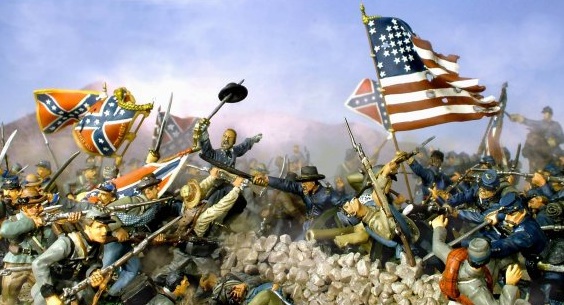By Paul Horton.
Because the history wars of the mid nineties have been reignited in Jefferson County, Colorado, the College Board’s rewrite of the United States American History Advanced Placement course is being defended by many as the best history curriculum available.
While I applaud the efforts of the of the College Board’s United States History committee for creating a more inclusive history course, I can’t support their course as the best preparation for college bound students.
Many of the independent schools across the country that specialize in sending students to competitive and very competitive colleges and universities have dropped Advanced Placement United States History during the last several years.
History teachers at these institutions became very frustrated with the assembly line approach that the College Board required of AP US courses.
Here at the Laboratory Schools in Chicago, the History Department chose to move away from Advanced Placement History courses to courses we call Advanced Topics (AT) History.
We were concerned about AP requiring teachers to teach to a curriculum created in Princeton, New Jersey that we equated with “assembly-line” history. The pacing of the courses, with thought, was much too fast, and we agreed that we lost depth as a result.
We thought that we could create courses that better prepared students for colleges. So we emphasize breath and depth of reading, an inquiry approach, and the development of analytical research papers.
Because college history courses typically require students to read large numbers of narrative histories and academic articles, we designed courses that were not centered on textbooks to give our students an opportunity to grapple with reading from a variety of sources, both primary and secondary.
The books and articles that we assign often have radically different points of view to encourage discussion and debate. We do not advocate one perspective or set of interpretations, but we encourage students to see differing points of view as they are presented in books and academic articles.
But we do emphasize narrative histories that fit together to cover history chronologically.
In addition, we design our courses around questions that are currently being debated by historians. For example, to what extent was the American Revolution a “radical” revolution? Or, to what extent was the European Renaissance a synthesis of ideas from other times and places? As we read, think about, debate, and discuss these questions, we ask students to begin to organize their thoughts and ideas to build arguments.
The next step is research. Students go beyond what they have read in class to research responses to questions like those posed above. These can be short more analytically focused papers, or longer research papers.
Some of these papers really take off. Students who want to develop papers beyond the requirements of a class assignment often work with teachers to refine their research and writing. We rely on Will Fitzhugh’s Concord Review as a standard of student produced excellence. We have many students who work very hard and submit their work to the Concord Review.
We have so many students who have wanted to revise their work for publication that we have created our own school history journal, InFlame.
Although many parents are concerned that our classes no longer prepare students for the AP test, students can still take the test.
Because our courses prepare students for the courses that they will take at the next level, our feedback from former students indicates that they are better prepared with more intensive reading and writing.
My advice for school districts that do not like the new AP US History course is to create your own courses. Make those courses deeper and tougher. Expect students to read a great deal more than they would in an AP United States History class. Expect them to produce papers that require more research than the new AP does.
A final advantage of creating your own advanced history course is that you can tailor the course to fit the expectations of your community. The fallacy of the Common Core approach is that one size does not fit every community.
Courses can be developed that cover the breath and depth of American history as E.D. Hirsch and Joy Hakim, among others, insist.
We can avoid a return to the history wars of the nineties and the lower expectations of the Common Core aligned US AP only by asking more of our students.
Serious engagement of history requires much more than reading. Students need to demonstrate their command of knowledge in the form of papers. Papers mirror the acquisition of knowledge and historical thinking.
There is no way around the hard work of knowledge acquisition. Knowledge acquisition requires more reading, more research, and more in-depth writing than either the old AP US or the new AP US require.
Advancing the study of American History in schools does not require aligning with the Common Core curriculum, the new Social Studies C3 objectives, or the new United States History AP. Nor does it require buying expensive College Board, Pearson Education, Microsoft, or Apple products.
Districts that are serious about teaching history should disregard the advice of our Education Secretary and the College Board and create courses that are more demanding. This is the only way to save history in the schools and to effectively prepare students for what they will face in college.
The best history courses are designed by experienced, passionate, and creative teachers. Great history courses are taught by great teachers, not by school boards or software and testing companies.
Paul Horton teaches History at the University of Chicago Laboratory Schools and was an AP United States History Reader (grader) for five years and former director of the Illinois chapter of the National Council for History Education.






Nicholas Tampio
This article is a breath of fresh air, particularly the last paragraph.
Nicholas Tampio
I have just written a piece on the College Board that, in my opinion, complements this article: http://america.aljazeera.com/opinions/2014/10/ap-us-history-educationschoolscolorado.html